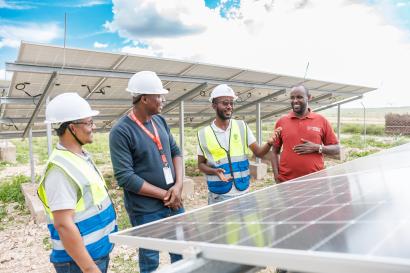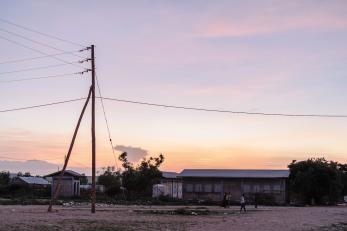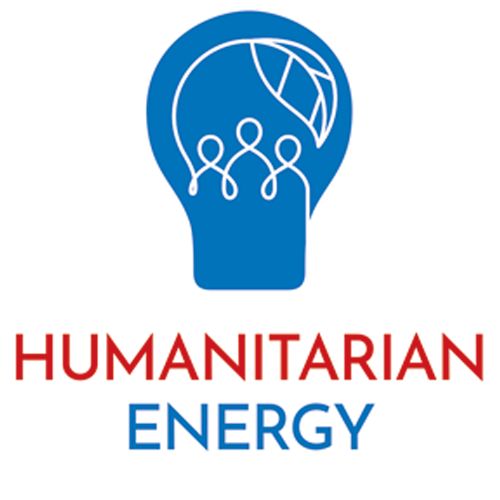Enter Energy Ethiopia: Empowering displaced and host communities in their journey to resilience through clean, affordable, and sustainable energy

Enter Energy Ethiopia
Access to energy is a key driver of economic development. The number of people without access to electricity dropped from almost one billion in 2017 to 860 million currently. Despite this progress, the world remains off-track to achieving SDG7 – “to ensure universal access to affordable, reliable, and modern energy services by 2030.”
Access to clean and affordable energy is only part of the predicament of countries with energy access issues. They are also threatened by fragility, conflict, and climate change, which can collectively drive population displacement and large-scale humanitarian crises.
There are over 114 million forcibly displaced people (FDP) worldwide, with 26% of the world’s refugee population hosted in Sub-Saharan Africa. There are 4.7 million FDPs in Ethiopia, and it is estimated that less than 7% of Ethiopian FDP’s have access to energy. When displacement occurs, a major challenge is how to address people’s access to energy for their well-being and income – not only for those displaced, but also for their host communities, who are often already suffering from a lack of access to clean and adequate energy.
Mercy Corps in partnership with Humanitarian Energy Plc, under the Enter Energy Initiative to delivered a 254 kWp minigrid at the Sheder camp in Jijiga, Somali Regional State, in Ethiopia which serves 17,600 refugees and 3,000 host community members, small businesses, community institutions and humanitarian organizations to access clean, reliable, and sustainable energy. Enter Energy Ethiopia, will contribute to the country’s target of universal electrification by 2025, the peaceful integration of refugees into the national development plans in accordance with the Comprehensive Refugee Response Framework (CRRF) as well as environmental preservation.

Objectives and Benefits
Enter Energy Ethiopia seeks to achieve two specific objectives:
- To provide the enabling environment for reputable energy companies to deploy sustainable, clean, and affordable energy services to improve the socio-economic wellbeing of displaced and host communities, while contributing to the decarbonization of humanitarian operations.
- To improve market mechanisms to enable refugees and host communities to raise their socio-economic status through productive use of energy opportunities.
Access to sustainable electricity means refugees – and their host communities – can work, study, and run a business. It is essential for connectivity. Having cleaner cooking fuels means refugees don’t have to compromise their health by inhaling harmful smoke. And if they no longer need to walk for hours to collect firewood, they are safer and have more time to be productive and contribute as an active member of the societies that host them.
Enter Energy Ethiopia would also contribute to the U.N. Refugee Agency’s (UNHRC) Clean Energy Challenge as the proposed model, which once tested in Ethiopia, would be disseminated for adaptation within the international community and feed into the global efforts to ensure access to affordable, reliable, sustainable, and modern energy for all at scale (SDG7).
Business Model
In collaboration with Humanitarian Energy PLC, a limited liability company established in Ethiopia by Mercy Corps and the national partner Rensys Engineering and Trading PLC, we aim to test, refine, and establish a sustainable Humanitarian energy-as-a-Service (HaaS) model. This powers households and productive activities, as well as humanitarian operations and agencies. This model would allow companies like Humanitarian Energy PLC to provide energy services without the clients having to invest their own capital into the projects.
- Solar-hybrid mini-grids for refugee settings and host communities
- Humanitarian Energy PLC generates, distributes and retails power to refugee and host communities in Ethiopia, providing reliable, 24-hour, renewable energy services. It designs, pre-finances, builds, operates and maintains all installations and recovers the investments through collections of consumption-based payments from its users. Charges are affordable, pre-paid and based on kWh-based metering.
- Solar and battery-based systems under the Energy Service Company (ESCO) model for humanitarian agencies (U.N., NGOs) and operations
- Humanitarian Energy PLC undertakes energy efficiency improvements such as replacing diesel generators with renewable energy-based solutions that improve quality, reliability, and security of supply. Humanitarian Energy PLC designs, prefinances, constructs, and guarantees performance through an asset-leasing model whose payments from the client are linked to energy greening and efficiency performance goals.
Learn more on Humanitarian Energy PLC and its operations ▸
Enter Energy Ethiopia aims to improve living conditions and business opportunities for refugees and host community members, supporting Humanitarian Energy PLC to deliver its services in a conducive environment in abidance with Ethiopian regulations. Mercy Corps will leverage its expertise to lead community engagement, business training, financial matchmaking, supply chain improvement and other activities, creating a virtuous cycle of expanding energy access and income together.
During the implementation phase, Mercy Corps will gain valuable structural and operational experience in the Sheder camp, with a view to expanding the program to other locations in Ethiopia and beyond.
Impacts to Date
- Established a scalable market-based model for energy access in humanitarian settings.
- In partnership with Humanitarian Energy PLC, commissioned a 254KWp solar hybrid minigrid in Sheder Refugee camp, serving over 17,600 refugees and their host community.
- Established a Productive Use of Energy (PUE) hub for 16 Small and Medium Enterprises in the host community.
- Supports more than 300 refugee businesses through access to clean, affordable, and sustainable electrification within the camp.
Contact
Cecilia Ragazzi
Director | Energy Access
cragazzi@mercycorps.org
Emmanuel Aziebor
Global Director | Enter Energy
eaziebor@mercycorps.org
